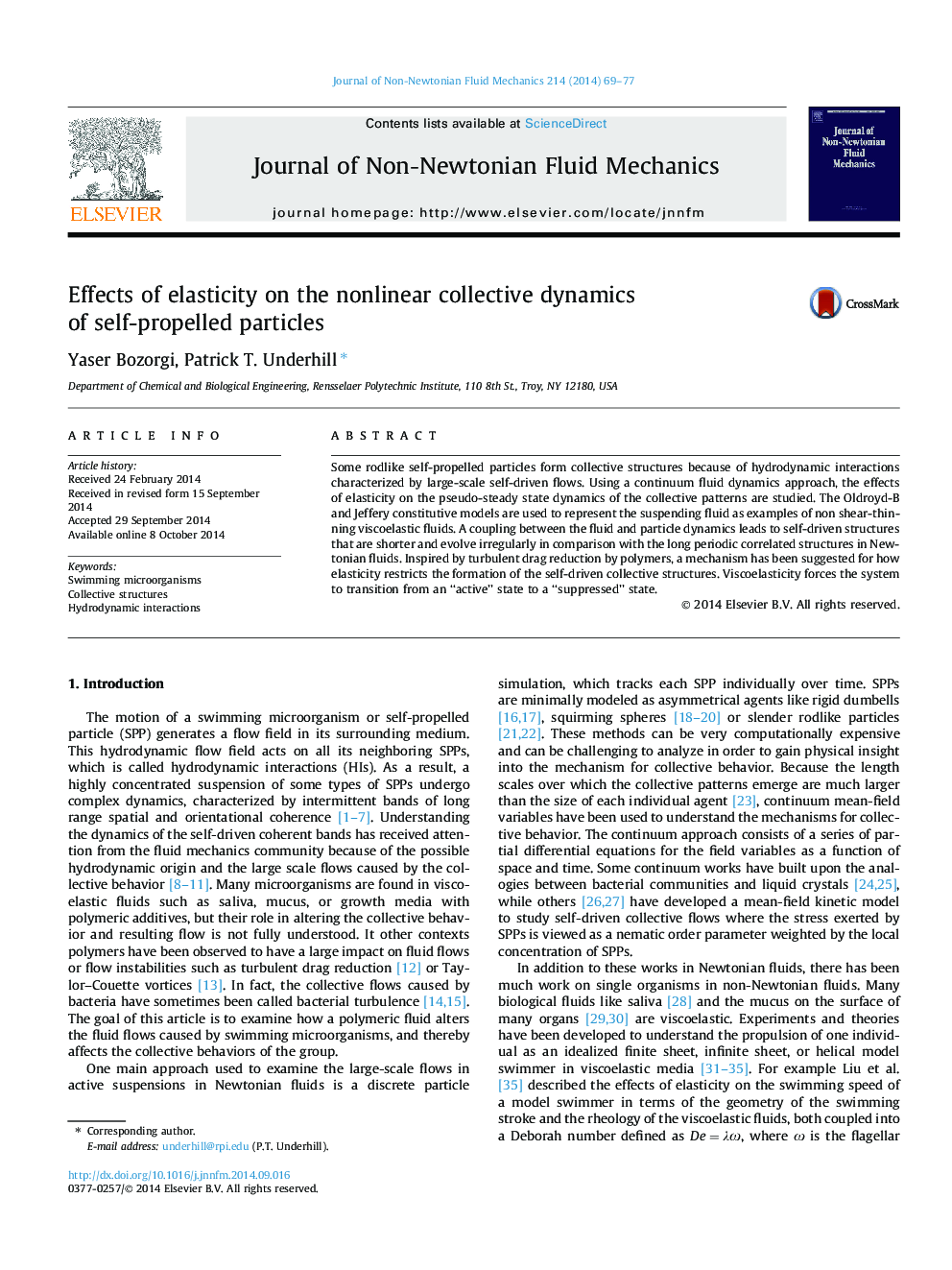| Article ID | Journal | Published Year | Pages | File Type |
|---|---|---|---|---|
| 7061394 | Journal of Non-Newtonian Fluid Mechanics | 2014 | 9 Pages |
Abstract
Some rodlike self-propelled particles form collective structures because of hydrodynamic interactions characterized by large-scale self-driven flows. Using a continuum fluid dynamics approach, the effects of elasticity on the pseudo-steady state dynamics of the collective patterns are studied. The Oldroyd-B and Jeffery constitutive models are used to represent the suspending fluid as examples of non shear-thinning viscoelastic fluids. A coupling between the fluid and particle dynamics leads to self-driven structures that are shorter and evolve irregularly in comparison with the long periodic correlated structures in Newtonian fluids. Inspired by turbulent drag reduction by polymers, a mechanism has been suggested for how elasticity restricts the formation of the self-driven collective structures. Viscoelasticity forces the system to transition from an “active” state to a “suppressed” state.
Related Topics
Physical Sciences and Engineering
Chemical Engineering
Fluid Flow and Transfer Processes
Authors
Yaser Bozorgi, Patrick T. Underhill,
